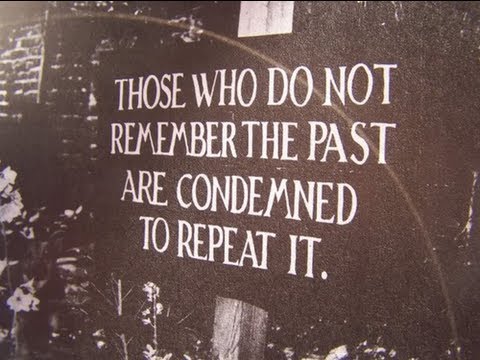History Repeats Itself

Those who do not remember the past are condemned to repeat it.
There is an age-old saying that history repeats itself, but does this saying have any roots in fact? Or, maybe it is just another one of “those” sayings that humankind used, practically since the dawn of time, to explain similar phenomena in history. It is well known that certain issues and debates have risen in various places and times throughout history. Some examples would be slavery, women’s rights, and the “which form of government is best” dispute. These are known as “enduring issues.” Kim Herrmann, Global Studies teacher, describes an enduring issue as “something that can last; it’s bigger than one person and one moment.” These issues certainly pop up in several places throughout history, but can it be expected for them to arise again in the future?
Another archaic saying is that to anticipate the future, you must first understand the past. The persecution of African Americans throughout the world began during, if not before, the time of Colonial America. During these times, when humanity needed a source of cheap labor, slave owners turned to the continent of Africa for their solution. They kidnapped and enslaved the native people and put them in boats to be sold in markets like objects, rather than people. Fast-forward many years and the Civil War is raging throughout the U.S. President Lincoln had issued the Emancipation Proclamation, freeing all slaves in the rebelling states. When the war ended, a time known as Reconstruction began. During this time, black Americans were still persecuted for using their rights as citizens of the United States. Even now, there are laws within the criminal justice system that are heavily weighted against black Americans. The issue of persecution has endured for hundreds of years, but can it truly be called a repeating issue? Herrmann explained, “A product of an enduring issue, is just part of that enduring issue, the product leads to other events. Genocide is the product of the enduring issues of conflict and power, and causes the ensuing events, the founding of Israel, the Arab-Israeli wars, terrorism, and the UN resolution of Human rights.”
Repeating issues are increasingly different from enduring issues. Repeating issues are cyclical and, therefore, will continue to plague human society forever; they will simply adapt to each new situation and find the cracks in the metaphorical defenses against them. Enduring issues are issues that, while persistent, can be made right through work. Issues are not just one or the other, they have many layers to them. The issues of groups not having voting rights or equal protection under laws are issues that can be fixed, but the underlying issues of intolerance and inequality will not, and always spring up during the darkest of times. Herrmann stated that some enduring issues “start at beginning [of a civilization] and leads to others [enduring issues].”
While enduring issues like persecution are persistent throughout our history, some say that the idea that they are repeating issues that can never be quelled is ridiculous. They say that just because our ancestors have failed to solve these issues, does not mean that they cannot be fixed. The United States has passed many laws that move the nation towards the eventual resolution to some of the core issues. Enduring and repeating issues cannot simply be solved by passing laws; they must be fixed within the minds of every person, or else the issue will not be gone for good. Issues like these are issues that speak more to faults in cultural perception than to the issue itself. Hermann finished by mentioning that “if the culture is a positive culture, one that embraces ideas and change, then there will be no conflict, one example of this is the enduring issue of interconnectedness.” The issue, therefore, is not what is repeating; the faults in a culture are really behind the idea that history is repeating itself.




































